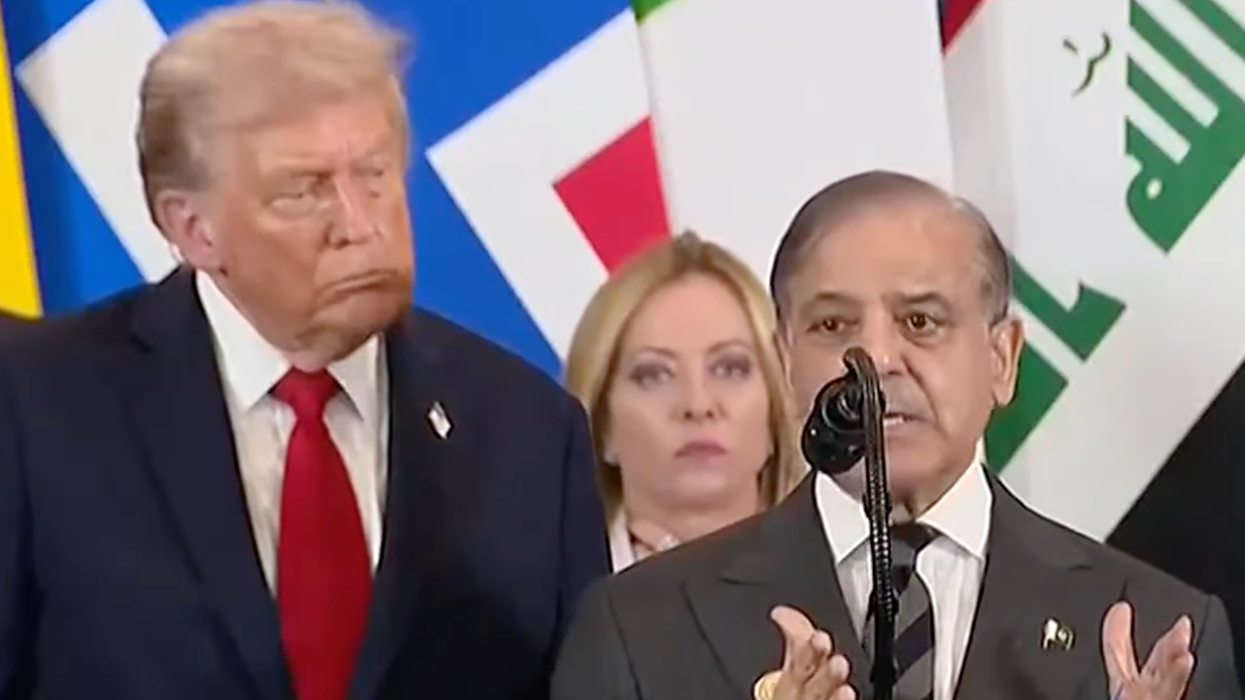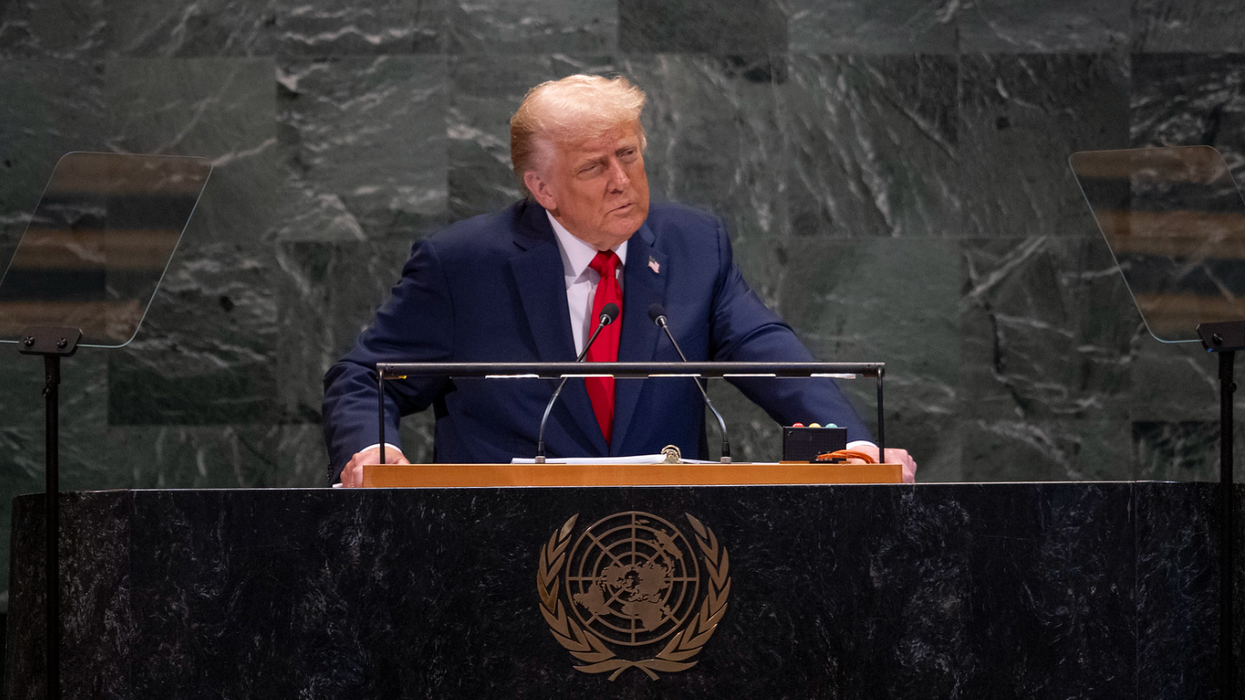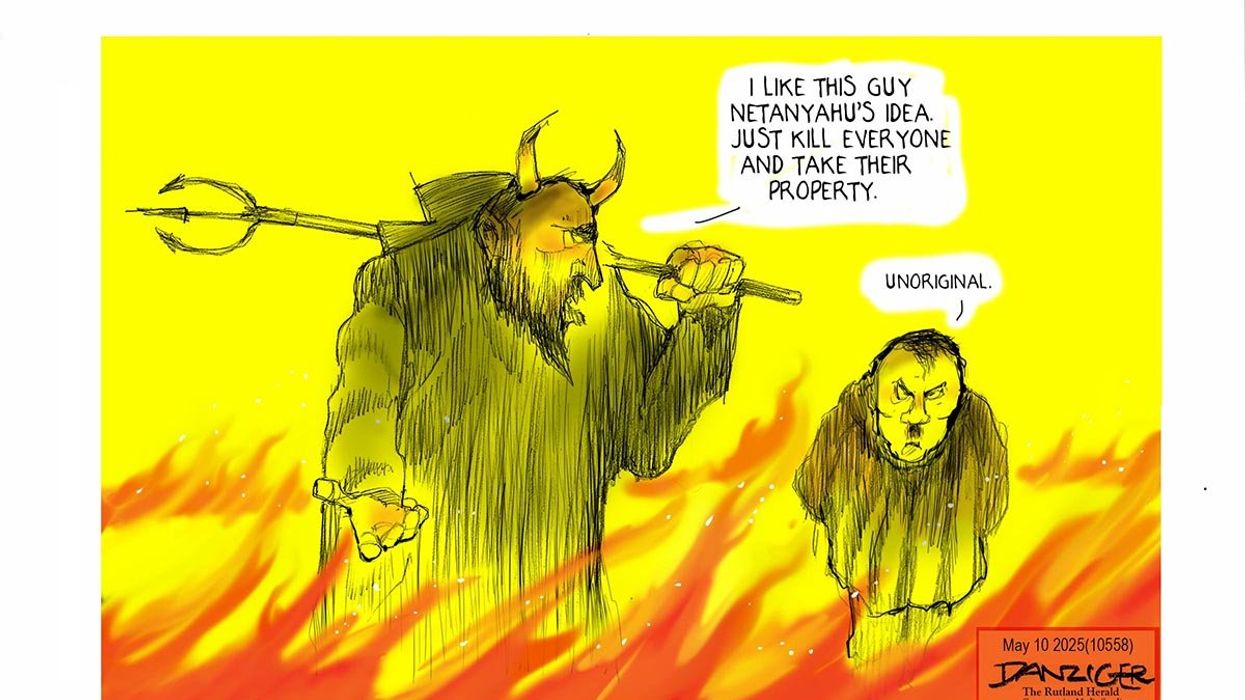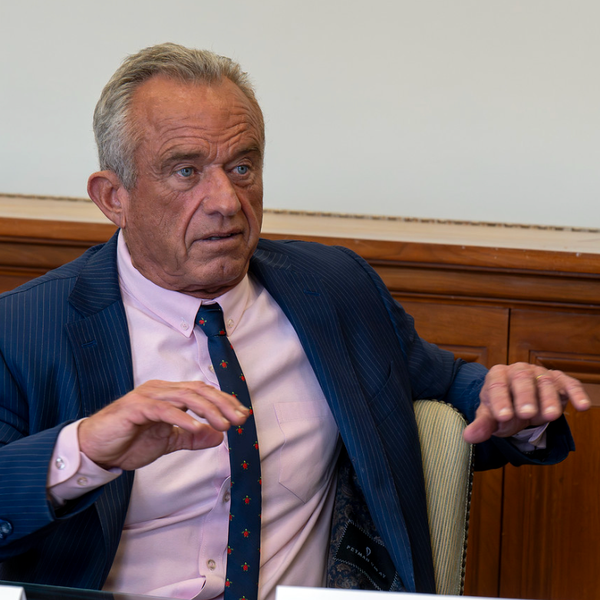At 'Peace Summit,' Trump Flaunts Egomania And Whines Over Nobel Peace Prize
President Donald Trump traveled to the Middle East on Monday to mark the first phase of a ceasefire deal between Israel and Hamas, in which Hamas agreed to release the final hostages held captive in Gaza in exchange for Israel releasing detained Palestinian prisoners.
And true to form, Trump made the day all about himself, basking in the praise of Israel’s far-right leaders, who lamented the fact that Trump did not win the Nobel Peace Prize.
Knesset Speaker Amir Ohana, a member of Israeli Prime Minister Benjamin Netanyahu’s right-wing Likud party, said Trump should have won the Nobel Peace Prize, declaring in a speech that Trump is a “colossus who will be enshrined in the pantheon of history.”
“What the world needs now are more leaders who are brave, resolute, strong, and bold. The world needs more Trumps,” Ohana added of the U.S. president who has sicced the military on his own citizens and has turned Customs and Border Patrol agents into masked goons who violently arrest anyone they think looks Hispanic.
Netanyahu, meanwhile, gifted Trump a golden statue of a dove—another hideously ostentatious trinket Trump can add to the White House he’s defiled with tacky gold ornaments.
And later, Netanyahu bragged in a speech before the Israeli parliament that he nominated Trump for the Nobel and said it's "only a matter of time" before Trump gets it.
Then in Egypt, where Trump traveled for a "Peace Summit," Trump whined about not winning the prize—which was awarded on Friday to a Venezuelan woman fighting for democracy who dedicated the prize to Trump anyway for his “decisive support.”
“We have Norway. Oh, Norway, aye aye aye! Norway, what happened? Norway, what happened?” Trump said in a speech at the summit, referring to the country that awards the annual award.
In the same speech, Trump also made Pakistani Prime Minister Shehbaz Sharif go up to the podium to "say what you said to me the other day"—which evidently was a boatload of over-the-top praise about how Trump deserved the Nobel Peace Prize.
"I would say that Pakistan had nominated President Donald Trump for Nobel Peace Prize for his outstanding extraordinary contributions to first, stop war between India and Pakistan, and then achieve ceasefire along with his very wonderful team," Sharif said. "And today again I would like to nominate this great president for Nobel Peace Prize.”
- YouTube youtu.be
Before his whining that he did not win the Nobel Peace Prize, he gave a speech in Israel in which he bragged about the weapons he sent to Israel that were used in their war against Hamas.
"Bibi Netanyahu would call me so many times asking for weapons I never even heard of, but we got them here didn’t we? You used them very well," Trump said.
Trump also embraces dictators like Russian President Vladimir Putin, who has carried out a brutally violent war against Ukraine, whose sovereign nation he is trying to annex to expand his dictatorial empire.
And he embraces other world leaders like Hungary’s Viktor Orban—who has silenced dissent in order to remain in power. On Monday, Trump even took time to praise Orban, who he called “fantastic” and a “great leader.”
Indeed, when giving out this year’s Nobel Peace Prize, the award committee described why Trump will never win the award.
"When authoritarians seize power, it is crucial to recognise courageous defenders of freedom who rise and resist. Democracy depends on people who refuse to stay silent, who dare to step forward despite grave risk, and who remind us that freedom must never be taken for granted, but must always be defended—with words, with courage, and with determination," the committee wrote.
A man who is trying to silence dissent, imprison his enemies, and ignore laws to remain in power will never win the Nobel.
Reprinted with permission from Daily Kos













